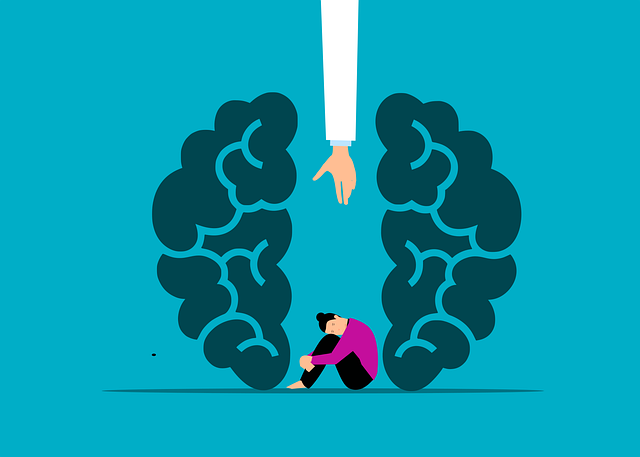
Introduction
Navigating mental health can feel like traversing an intricate maze, where every turn brings new challenges and discoveries. Both physicians and patients play crucial roles in this journey, and understanding how to effectively communicate and manage mental health concerns can significantly impact outcomes. Whether you are wondering how to talk to your doctor about depression and anxiety or looking for ways to support someone with PTSD, this guide offers comprehensive insights for everyone involved.
How to Talk to Your Doctor About Depression and Anxiety
Breaking the Ice
Initiating a conversation about mental health can be daunting. It’s essential to approach this discussion with honesty and openness. Begin by clearly expressing your feelings and symptoms. You might say, “I’ve been feeling unusually sad and anxious lately, and I think it’s affecting my daily life.” This sets a straightforward tone and allows your doctor to understand your concerns.
Preparing for the Appointment
Before your appointment, take some time to note your symptoms, their duration, and any potential triggers. This preparation can help streamline the conversation and ensure you don’t forget any critical points. Remember, your doctor is there to help, not judge.
Asking the Right Questions
Don’t hesitate to ask questions about your condition and treatment options. Inquire about potential side effects of medications, the benefits of therapy, and lifestyle changes that might help. Understanding your treatment plan can empower you to take an active role in your mental health journey.
How Does a Primary Care Doctor Treat Mental Illness?
Initial Assessment
Primary care doctors are often the first point of contact for mental health concerns. They will typically start with a comprehensive assessment, which includes a detailed medical history, a review of symptoms, and sometimes a physical examination to rule out other causes.
Treatment Options
Treatment plans may vary based on the severity and type of mental illness. Common approaches include:
- Medication: Antidepressants, anti-anxiety medications, and mood stabilizers can help manage symptoms.
- Therapy: Cognitive-behavioral therapy (CBT), psychotherapy, and counseling are effective for many patients.
- Lifestyle Changes: Encouraging exercise, healthy eating, and mindfulness practices can support overall well-being.
Referral to Specialists
In some cases, a primary care doctor may refer you to a mental health specialist, such as a psychiatrist or psychologist, for more specialized care.
Adapting Approaches for Chronic Depression and Anxiety
Long-Term Management
Managing chronic depression or anxiety requires a nuanced approach. Physicians must tailor treatment plans to the individual, considering both the psychological and physiological aspects of their condition.
Monitoring Progress
Regular follow-ups are crucial for monitoring the effectiveness of treatment. Adjustments may be necessary over time, whether it’s tweaking medication dosages or exploring new therapeutic techniques.
Building a Support Network
Encouraging patients to build a strong support network is vital. Family, friends, and support groups can provide emotional backing and practical advice, enhancing the patient’s ability to cope.
Free Mental Health Resources
Who Can I Talk to About My Mental Health for Free?
Accessing mental health support doesn’t always require money. Numerous resources are available for those in need:
- Crisis Hotlines: Organizations like the National Suicide Prevention Lifeline offer immediate support.
- Online Forums: Websites like 7 Cups and Reddit’s r/mentalhealth provide community-based support.
- Community Services: Many local governments and non-profits offer free counseling and support services.
Why Are Social Connections Important for PTSD Patients?
Social connections play a crucial role in the recovery process for PTSD patients. Engaging with others who understand their experiences can reduce feelings of isolation and promote healing. Peer support groups and community activities are invaluable resources.
What Happens If You Tell Your Doctor About Suicidal Thoughts?
Immediate Response
If you express suicidal thoughts to your doctor, they will take immediate action to ensure your safety. This might include:
- Conducting a Risk Assessment: Evaluating the severity of your thoughts and any potential plans or means.
- Creating a Safety Plan: Developing a strategy to keep you safe, which may involve removing access to harmful items and identifying a support system.
- Referring to Emergency Services: In severe cases, hospitalization may be necessary to provide intensive care and monitoring.
Ongoing Support
Your doctor will likely refer you to mental health specialists for further treatment and support. Regular follow-ups and therapeutic interventions are essential to address the underlying issues contributing to your suicidal thoughts.
NIMH’s Tips for Talking with Your Health Care Provider
Effective Communication Strategies
The National Institute of Mental Health (NIMH) provides valuable guidelines for communicating with healthcare providers:
- Be Honest: Share all relevant information about your symptoms and history.
- Be Specific: Describe your symptoms in detail, including their frequency and impact on your life.
- Ask Questions: Don’t hesitate to seek clarification on anything you don’t understand about your diagnosis or treatment.
Building a Collaborative Relationship
Effective mental health care relies on a collaborative relationship between you and your doctor. Engage actively in your treatment plan, and provide feedback on what’s working or needs adjustment.
Things You Should Not Tell Your Doctor
Maintaining Trust and Accuracy
While honesty is crucial, it’s equally important to communicate constructively. Avoid:
- Exaggeration: Overstating symptoms can lead to misdiagnosis and inappropriate treatment.
- Withholding Information: Omitting details about substance use, medication adherence, or other relevant factors can hinder your doctor’s ability to provide effective care.
Focus on Facts
Present your situation as clearly and factually as possible to ensure your doctor has all the necessary information to make informed decisions about your care.
Conclusion
Navigating mental health requires a delicate balance of communication, trust, and proactive management. Whether you are a patient seeking help or a physician providing care, understanding these dynamics can lead to better outcomes and a more supportive healthcare experience. Remember, mental health is just as important as physical health, and seeking help is a sign of strength, not weakness. Embrace the journey, armed with knowledge and support, and take the first step towards a healthier, more fulfilling life.